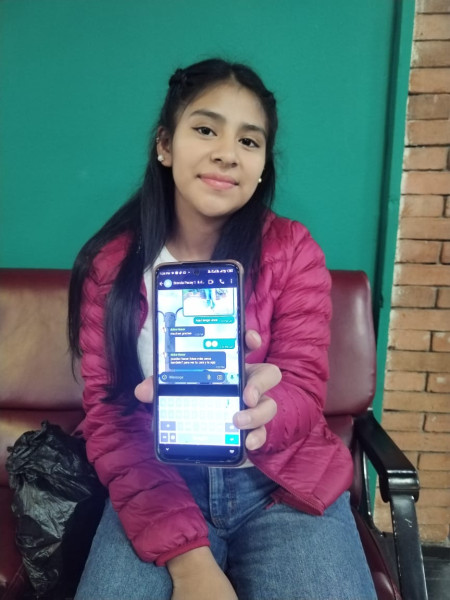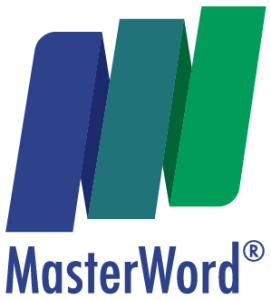Mayan Languages Preservation and Digitization Project Expands Digital Access With New Universal Mayan, Q’eqchi', and K'iche’ Keyboards for Android

HOUSTON, December 3, 2024 (Newswire.com) - The Mayan Languages Preservation and Digitization Project proudly announces the launch of the Universal Mayan, Q'eqchi', and K'iche' Keyboards for Android devices. These innovative tools, designed from the ground up, mark significant progress in the ongoing efforts to preserve and expand digital access for Mayan language speakers, providing essential resources that empower millions of users across North and Central America who primarily connect to digital services through handheld devices.
Building on the success of previous initiatives, these keyboards offer comprehensive support for written communication in Mayan languages, ensuring users have access to every character needed for accurate expression in their native tongue. The Universal Mayan Keyboard, launched in late October, serves as a foundational tool for multiple Mayan languages, while the newly released Q'eqchi' and K'iche' Keyboards are tailored to meet the specific needs of Q'eqchi' and K'iche' speakers. All are now available on the Google Play Store.
https://play.google.com/store/apps/details?id=masterword.mayanuniversal.keyboard
https://play.google.com/store/apps/details?id=masterword.kiche.keyboard
https://play.google.com/store/apps/details?id=masterword.kiche.keyboard&pli=1
"For me, it is very important to have a keyboard in our Mayan languages so that we can write and read our own languages well. Because until now there has not been a keyboard in our language and for me this is something that will help our people a lot," says Dalila Choc, a Q'eqchi' contributor on the project team.
A Community-Driven Effort
The Mayan Languages Preservation and Digitization Project emphasizes collaboration with Mayan-speaking communities to ensure the cultural and linguistic integrity of its tools. Over 100 community contributors have provided invaluable input and qualified human review of data to create keyboards and other digital resources that are user-friendly, accurate, and reflective of linguistic diversity. The community-led approach sets this initiative apart from similar non-community led efforts, which often rely solely on automated data scraping, an often-harmful approach for indigenous and other languages with minimal digital footprints.
"A keyboard for Q'eqchi' is very important because now we can write more efficiently in our language. And it is more pleasant to write in one's own language," says Ingrid Pacay, who contributed to the project's development. Floricelda Choc, another community contributor, adds, "it is a tool that is very useful to ensure that we do not lose our language."
Setting the Stage for Future Innovations
These new keyboards represent just one aspect of the project's broader vision to create fully localized digital ecosystems for Mayan languages. Earlier this year, the project unveiled its first fully localized website, mayanlanguagepreservation.org, accessible entirely in K'iche' and Q'eqchi', with many other Mayan languages to follow. This first-of-its-kind website, containing no Spanish or English intrusions, is an important step toward ensuring Mayan language speakers can truly navigate the digital world in their native languages.
The project also announced plans to release additional language-specific keyboards in the coming months, including Kaqchikel, Mam, and other Mayan languages. This sustained momentum underscores the project's commitment to providing equitable digital access for indigenous communities.
According to Project Director, Dr. Winton Scott, "This keyboard is more than a symbolic win for Mayan language communities that desire greater access to their language in technology. This is one of a growing number of tools that will ensure language equality for all."
About the Mayan Languages Preservation and Digitization Project
Launched in May 2023, the Mayan Languages Preservation and Digitization Project is an open-source initiative dedicated to preserving and revitalizing Mayan languages through innovative digital tools and community-driven efforts. From talking glossaries to localized websites, the project is creating a digital framework that empowers Mayan speakers and supports their linguistic and cultural heritage. The project is sponsored and supported with the technology and expertise of MasterWord Services, Inc., a language services company and partner organization of UNESCO's International Decade of Indigenous Languages.
For more information, visit: https://mayanlanguagepreservation.org
Follow the project on social media at:
https://www.instagram.com/mayanlanguages/
https://www.facebook.com/profile.php?id=61564019233483
https://www.linkedin.com/company/mayan-languages-preservation-project/
Related Video
https://vimeo.com/1035656318/7f5e3491f0
Source: Mayan Languages Preservation and Digitization Project
